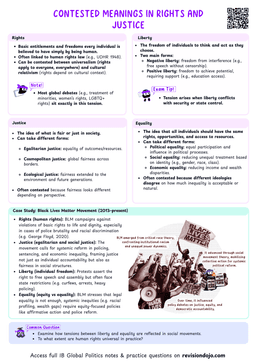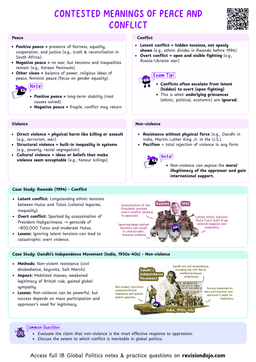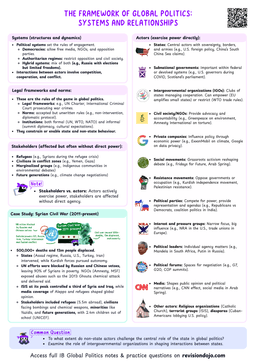Civil Society Organizations and Human Rights Advocacy
What Are Civil Society Organizations?
Civil Society Organizations
Civil Society Organizations (CSOs) are non-state actors that operate independently of governments and businesses.
- Non-Governmental Organizations (NGOs): Focused on specific issues like human rights, environmental protection, or poverty alleviation.
- Community-Based Organizations (CBOs): Operate at the local level to address community-specific needs.
- Advocacy Groups: Campaign for policy changes on issues like gender equality or climate justice.
- Faith-Based Organizations: Use religious frameworks to promote social justice and humanitarian aid.
- CSOs play a crucial role in strengthening democracy, promoting accountability, and advocating for marginalized communities.
The Role of NGOs in Human Rights Advocacy
Non-Governmental Organizations
Non-Governmental Organizations (NGOs) are a subset of CSOs that focus on specific issues, often with a global reach.
- Monitor and Report Violations: Document abuses and raise awareness through reports, media campaigns, and social media.
- Advocate for Policy Change: Lobby governments and international organizations to adopt and enforce human rights laws.
- Provide Direct Assistance: Offer legal aid, shelter, and support to victims of human rights abuses.
- Educate and Raise Awareness: Conduct workshops, seminars, and public campaigns to inform citizens about their rights.
- Amnesty International is a leading NGO that investigates and reports on human rights violations worldwide.
- Its campaigns have led to the release of political prisoners and the abolition of the death penalty in several countries.
How CSOs Influence Human Rights
- Raising Awareness: CSOs use media campaigns, reports, and public demonstrations to highlight human rights abuses.
- Advocacy and Lobbying: They pressure governments and international organizations to adopt policies that protect human rights.
- Providing Support: CSOs offer legal aid, shelter, and resources to victims of human rights violations.
- Building Networks: They collaborate with other organizations, creating coalitions to amplify their impact.
- When analyzing the impact of CSOs, consider their ability to operate independently, their access to resources, and the political context in which they work.
Case Studies
Human Rights Watch
- Human Rights Watch (HRW) is a global NGO that investigates and reports on human rights abuses. Its work includes:
- Documenting Violations: HRW publishes detailed reports on issues like torture, child labor, and gender-based violence.
- Advocacy: The organization lobbies governments and international bodies to implement policy changes.
- Raising Awareness: HRW uses media campaigns to inform the public and mobilize support for human rights causes.
- In 2020, HRW's report on the treatment of Uyghur Muslims in China brought international attention to the issue, leading to sanctions and diplomatic pressure on the Chinese government.
Amnesty International
- Founded: 1961, focuses on human rights globally.
- UN status: Special consultative status (since 1964) advises but cannot vote.
- Independent & often critical of UN/state abuses.
- Funded by public donations, 10+ million members.
- Key Issues Monitored:
- Civil/political: torture, detention, freedom of expression.
- Social/economic: child rights, discrimination, refugees, climate change.
- Justice: death penalty, international justice, police brutality.
- Activities:
- Investigates abuses, shares findings with IGOs/states.
- Runs campaigns, protests, petitions.
- Publishes “State of the World” report annually, used to ‘name and shame’ violators.
- In 2022, Amnesty International released a report accusing Myanmar’s military of committing war crimes and crimes against humanity during its crackdown on civilians following the 2021 coup.
- The organization documented evidence of unlawful killings, torture, and mass arrests, and called for international action and accountability through the International Criminal Court.
Child Rights International Network (CRIN)
- Founded: 1995
- Focus: Promotes children’s rights globally using a legal advocacy approach.
- Works to hold governments accountable through strategic litigation, research, and campaigning.
- Believes children should be treated as independent rights-holders, not just as dependents.
- Key Areas:
- Juvenile justice (e.g. ending child detention)
- Access to courts and legal remedies for children
- Challenging harmful laws (e.g. corporal punishment, minimum marriage age)
- Promotes legal reforms aligned with the UN Convention on the Rights of the Child (UNCRC)
Legal Clinic for Refugee Children in Bethlehem
- Issue: Refugee children in the Dheisheh Camp, West Bank, lacked access to legal representation and support within the Palestinian justice system.
- CRIN's Role: Collaborated with the Shoruq Organisation to establish a legal clinic in 2014, providing legal aid, counseling, and follow-up services for children in conflict with the law.
- Outcome: The clinic addressed a critical gap in legal and social services, ensuring that children's rights were upheld during legal proceedings and promoting systemic reforms in juvenile justice.
Challenges Faced by CSOs
- Political Repression: In some countries, governments restrict the activities of CSOs through laws, censorship, or harassment.
- Funding Constraints: Many CSOs rely on donations and grants, which can be unstable or politically influenced.
- Limited Access: In conflict zones or authoritarian states, CSOs may struggle to gather information or provide assistance.
- Balancing Independence: Maintaining neutrality while advocating for change can be challenging, especially when working with governments or international organizations.
- Despite these challenges, CSOs remain a vital force in promoting human rights and holding powerful actors accountable.
The Global Impact of CSOs
- Shaping International Norms: CSOs have been instrumental in the development of international treaties and conventions, such as the Convention on the Rights of the Child.
- Empowering Local Communities: By providing resources and support, CSOs help communities advocate for their rights and hold local authorities accountable.
- Fostering Global Solidarity: CSOs connect activists and organizations across borders, creating a global network of human rights defenders.
- Identify three ways in which CSOs contribute to human rights advocacy.
- Explain the challenges CSOs face in authoritarian contexts.
- Reflect on a recent human rights issue and consider how CSOs have influenced the response.
- How do cultural perspectives shape our understanding of human rights?
- What ethical considerations arise when CSOs intervene in sovereign states to address human rights abuses?


